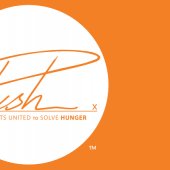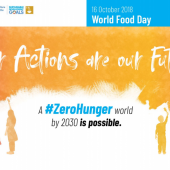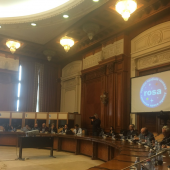Open Access & Open Data to help solve World Hunger and Malnutrition
A Global Open Data for Agriculture (GODAN) partner report has highlighted the need for open access and open data at universities to help solve world hunger and malnutrition.
The report, 'Open Access and Open Data at PUSH Universities', was published by Presidents United to Solve Hunger (PUSH), a GODAN partner led by Auburn University in the USA.
GODAN, and Officials at Auburn, support university policies that permit access to university research in areas such as agriculture and nutrition. If such data was released, it could be used to enhance similar research across the globe and help respond to global challenges such as hunger and malnutrition.
The report is a result of an Auburn investigation of 99 PUSH member universities that found only 15 have open access policies, and that none have specific open data policies. Dr. Anne Adrian, project manager for the Hunger Solutions Institute who led the investigation said: “If you share what you’ve learned with others, they can use it to find solutions that they may not find otherwise.”
Andre Laperriere, Executive Director for GODAN commented: “Open data has proven to be one of the most important tools to share scientific knowledge, stimulate collaboration and generate innovation worldwide. Innovation is key if we are to make progress towards achieving global nutritional security, and universities could help pave the way as they generate knowledge.”
.jpg) The investigation also found the practice of open data is still largely driven by the research funder’s requirement to comply with their funding mandate. The privately funded Bill and Melinda Gates Foundation, for instance, requires all its funding recipients to provide open data.
The investigation also found the practice of open data is still largely driven by the research funder’s requirement to comply with their funding mandate. The privately funded Bill and Melinda Gates Foundation, for instance, requires all its funding recipients to provide open data.
Martin Parr of GODAN says: “Researchers want to make the research they do more open to solve grand challenges in the world, but they want to do that in a way that does not jeopardize their careers. We need to work with them and the people who fund research to find new incentives for sharing to the benefit of all”
Calling for more open data has its challenges as it is perceived by some that the release of intellectual property could financially benefit another academic institution before the data generators. It could also put additional demand on university librarians to manage enormous amounts of data.
Adrian said universities, researchers and funders have to start to work together more in order to create a pathway to open access and open data for the benefit of all. “To move forward with this, Auburn University needs to lead by example.” Adrian said.
The report also points out that open access and open data increase transparency, as well as citations and recognition of faculty and their universities. This increases the potential of identifying research collaborators and meeting funding requirements. The full report entitled “Open Access & Open Data at PUSH Universities” is available here.
"We welcome this report by PUSH. We support the Open Data Initiative and believe Universities can do better in promoting open access and open data to help enhance research and innovation." Professor Peter Atkinson, Lancaster University. Lancaster is one of two UK PUSH Universities.
"Making data of this sort openly available creates enormous potential. It means there is a strong foundation for evidence-based policy-making, and a whole range of new opportunities for the development of innovative solutions to address pressing real-world problems" Stephen Pinfield, Professor of Information Services Management, University of Sheffield.
Mississippi State University president Mark Keenum, Chairman of both the PUSH Steering Committee and the Board for International Food and Agriculture Development, added:
“As we face the daunting challenge of feeding nearly 10 billion people by 2050, universities are being called upon to develop best practices and infrastructure to promote the sharing and use of open data to advance agriculture and nutrition research. At Mississippi State, we are working diligently to leverage the power of open access and data sharing to meet this challenge, and I encourage my fellow presidents and chancellors to join us.”
GODAN supports the proactive sharing of open data to make information about agriculture and nutrition available, accessible and usable to deal with the urgent challenge of ensuring world food security. Organisations can join by registering at www.godan.info/become-a-godan-partner
Link to story on PUSH website





